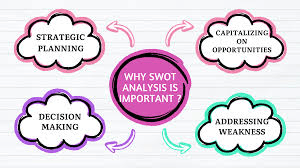In times of economic uncertainty, businesses are often forced to adapt or risk falling behind. While these periods present significant challenges, they also provide unique opportunities for innovation and growth. As the global business landscape continues to evolve, companies that embrace new technologies and strategies are more likely to weather economic downturns
and emerge stronger. This blog explores key ways businesses can innovate and thrive during tough times.
Leveraging New Technologies
One of the most effective ways for businesses to stay ahead during economic uncertainty is by embracing new technologies. Advancements in areas such as artificial intelligence (AI), automation, and cloud computing allow companies to streamline operations, reduce costs, and increase efficiency. For example, AI-driven data analytics can help businesses make informed
decisions faster, while automation tools can handle repetitive tasks, freeing up employees to focus on more strategic initiatives.
Businesses that invest in these technologies not only improve their current processes but also future-proof their operations for continued success.
Fostering a Culture of Innovation
Innovation isn’t just about adopting new technologies—it’s also about fostering a culture that encourages creative problem-solving and new ideas. Companies that empower their teams to think outside the box are more likely to develop breakthrough solutions during challenging times. A practical way to do this is by creating innovation hubs or holding regular brainstorming sessions where employees from different departments collaborate on potential improvements or new offerings. Encouraging a
mindset of continuous improvement helps businesses stay agile and adaptable, even when faced with uncertainty.
Exploring New Business Models
Economic downturns often expose weaknesses in traditional business models. This is an ideal time to explore new approaches, such as adopting subscription services, entering new markets, or partnering with other businesses to share resources. For instance, many companies shifted to e-commerce and delivery models during the pandemic, and those that adapted quickly saw considerable success. By being open to new business models, companies can mitigate risk and
uncover new revenue streams, making them more resilient to future disruptions.
Focusing on Customer-Centric Innovation
During tough times, customer needs often change. By staying in tune with these shifting demands, businesses can innovate in ways that keep customers engaged and loyal. This might involve using technology to personalize customer experiences, improving communication through digital channels, or launching new products or services that meet emerging needs. By keeping the customer at the center of their innovation efforts, businesses can not only survive but strengthen relationships and build lasting loyalty.
Conclusion: Adaptation is Key
In times of economic uncertainty, the businesses that succeed are those that innovate and adapt. Whether it’s leveraging new technologies, fostering a culture of innovation, exploring fresh business models, or focusing on customer-centric strategies, staying ahead of the curve requires agility and a willingness to embrace change. Now more than ever, businesses must ask themselves: What new technologies or approaches are you using to stay ahead of the curve during tough times?




0 Comments